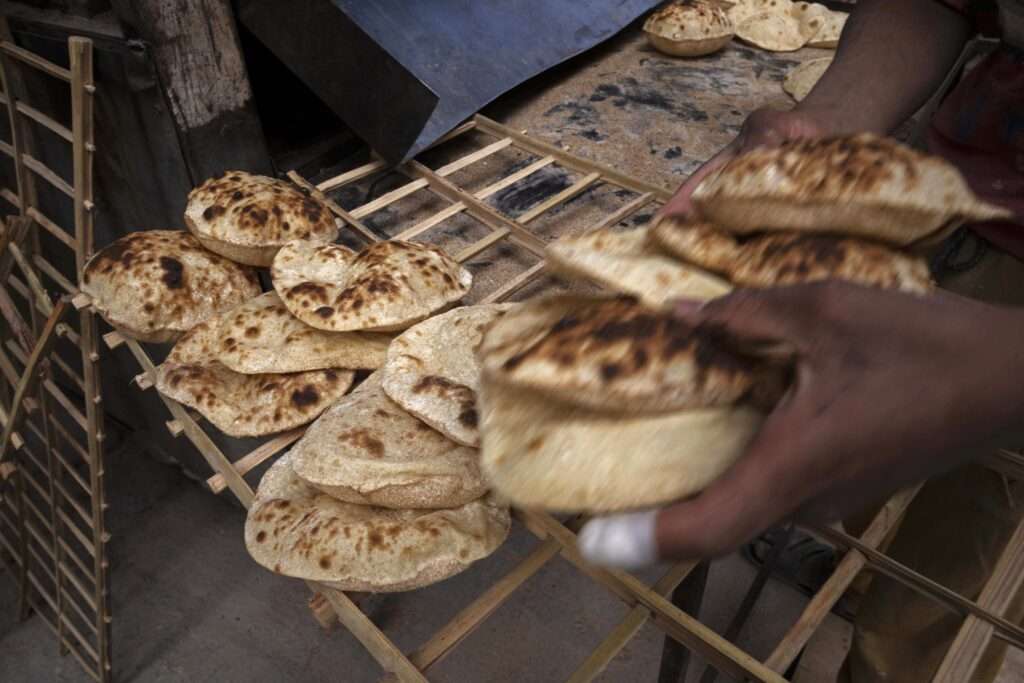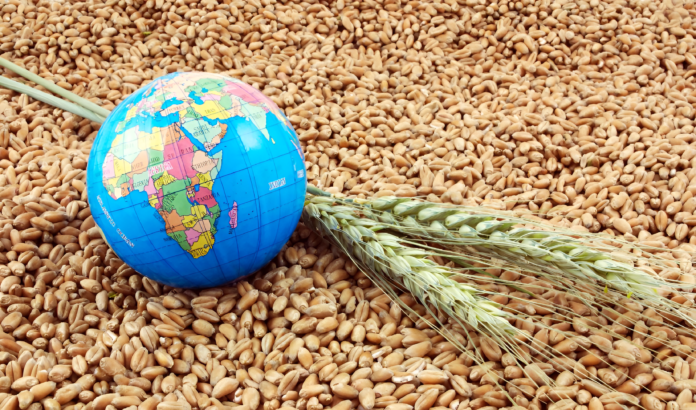Background:
I must confess that the topic of ‘food security’ was farthest from my mind since my main focus has always been on Strategic and Foreign Policy doctrine for many years and also what Pakistan has to do to adjust strategically as well as tactically to curb and maneuver forthcoming regional and global challenges. However, after observing the recent global events and rising concerns on supply chain issues plus lack of food security worldwide, I think one must focus on this emerging danger that can impact a vast population of the world, specifically those belonging to low incomes and poor countries. Many seminars/webinars and scholastic discussions are ongoing on the food security topic and experts are trying to find ways to protect the shortage of food supplies that is fundamental for the existence of mankind.
The Ukraine War is deepening global food Insecurity but even before Russia invaded Ukraine, the global economy was suffering from the repercussions of several man-made conflicts, climate shocks and natural disasters, the impact of COVID-19 and rising food costs. Ukraine, which is seen as a major “breadbasket” for the world due to its vast supply chain to the world and the war with Russia is deepening the food security challenges on an unprecedented scale. As the war drags on, record levels of acute food insecurity are expected to rise exponentially. The food insecurity crisis that is spreading around the world is not happening in a vacuum. Amid the COVID pandemic, supply chain issues and soaring inflation, global food prices have been on the rise since the mid-2020 and are now at an all-time high.
Global food markets are extremely concentrated, both in terms of supplies and reserves. Such concentrated and thin markets mean that when crises like the war in Ukraine happen, the global supply of food can be derailed quickly, leading to high costs. For example, insurance premiums are skyrocketing for vessels operating in the Black Sea, which further raises prices for all staple foods. Many countries are turning to alternative sources, but cost increases are also associated with these maneuvers as well. Countries in Europe or the Middle East that relied on Russian or Ukrainian food imports now suddenly have to pivot acquiring them from Canada or Australia which will be more expensive given the greater travelling distance involved. Shocks like the war in Ukraine put into stark relief that food insecurity challenges are not always related to availability issues. Rather, it’s a question of accessibility and affordability.
At the UN and international academia level, there are many programs and studies in progress about handling the food security challenges. These studies mainly focus on increasing yields, profitability, and environmental sustainability, developing varieties and breeds needed for sustainable food systems, decreasing food loss and waste through more efficient distribution systems, creating and sharing resources that serve all populations, ensuring inclusive and equitable food systems and finally ensuring a safe and secure food supply that protects and improves the vast global population health.
The above elaborated background is given for the sake of reader’s awareness, now let us focus on the kind of impact on Pakistan and the region in regard to challenges related to food security. The challenges for Pakistan on the subject have started skyrocketing and I do not see any serious plans from any credible resources, and no one is even talking about it. Amongst the various challenges Pakistan has to face, one is to manage the huge influx towards urbanization and diminishing agriculture lands.
Expanding Urban population & Consequences:
This is the global phenomenon especially in the developing countries and the situation is getting worse due to the simple reason that people are migrating from rural areas to established cities and urban lands for more opportunities whether in education, jobs or business. The equation is simple, the more people there are, especially in poor countries with limited amounts of land and water, the fewer resources there are to meet basic needs. Amongst the negative consequences of rapid urbanization, there has been a shift in production patterns of food, highly correlated with access to processed foods that is utterly unhealthy. The other bad consequence of rapid urban growth is the spread of infectious diseases. Consequently, death rates in urban areas historically remain higher than in rural areas.
The problems associated with urbanization are, high population density, inadequate infrastructure, lack of affordable housing, flooding, pollution, slum creation, crime, congestion and poverty. Some of the major health problems resulting from urbanization include poor nutrition, pollution-related health conditions, communicable diseases, poor sanitation and housing conditions and general related health conditions.
If we look at Pakistan specifically, we notice that major cities like Karachi, Lahore, Islamabad, Rawalpindi, Faisalabad and Multan have massively grown in terms of rural to urban migration. As a direct consequence of this migration, the people who were associated with agriculture profession tend to sell their lands and buy real estate land for residential and business reasons in the major cities. The farming land that they sold, now turning out to be the real estate projects, resulting in diminishing farming lands that are negatively impacting our national food security. Pakistan was a food rich country just a decade ago, but very unfortunately since the real Estate Mafia is in action and buying out agriculture lands in order to develop further residential societies, Pakistan is forced to import the basic food necessities and this is creating a huge burden on our foreign exchange, on the economy and negatively contributing to the national Gross Domestic Product (GDP).
The recent catastrophic floods in Pakistan have pushed the country to the brink. These floods followed the COVID-19 pandemic, rising inflation and the most severe heatwave the country has faced in more than 60 years. Due to these factors, Pakistan which was a food surplus country, is now ranked at the 92nd spot out of 116 countries on the Global Hunger Index in 2021 and according to the International Food Security Assessment by the US Department of Agriculture in the coming decade, a total of 38 percent of the population of Pakistan is going to be food insecure.
As mentioned above one of the problems is also pollution that is primarily caused by over growth of a city and as recently seen in Pakistan this is the direct result of uncontrolled urban spread. Air pollution is also a growing environmental problem in most major cities of Pakistan. According to a World Bank report, “Karachi’s urban air pollution is among the most severe in the world and it engenders significant damages to human health and the economy”.

In addition to the uncontrolled urban growth, industrial policies and practices in Pakistan also compound the pollution problem. The lack of awareness, lack of law enforcement and unemployment due to urbanization is a big challenge towards handling pollution concerns in Pakistan. Reports also point to the burning of tires to power factory units and brick kilns, while farmers burn their fields to prepare for more future planting are also some other reasons for pollution in Pakistan.
Pakistan is also trying to curb the pollution problem since the past three years, over 7,000 conventional brick kilns have been converted into “zigzag” kilns, resulting in a 60% reduction in black carbon emissions, a 40% reduction in particulate matter emissions, and a 15% reduction in CO2 emissions, yet the lack of law enforcement and well as lack of will on part of the leadership has translated the success gained back to ground zero.
Food security has four interrelated elements: availability, access, utilization, and stability. Let us highlight these elements one by one.
Availability: The availability of food ingredients are being squeezed year by year due to expansion of real estate business and urbanization. Proper legislation needs to be done to stop such uncontrolled squeezing of farm and agricultural lands.
Access: Even for the remaining agricultural and food products being produced within Pakistan, it is of utmost importance to develop a network of roads and transportation structure to enable them to market these with easy access from farmers to consumer markets.
Utilization: The utilization needs to be improved for a healthy society. Upgrading the food processors that supply consumers with their milled or processed products offers significant scope to improve utilization at scale in areas where the poor are purchasing.
Stability: This element is directly related to the political stability of the country that has a huge impact on food security due to uncertainty caused by political chaos. Unfortunately, Pakistan is passing through an internal crisis due to political instability caused by decades long experimentation by political elites, thus it prevented a natural evolution of political leadership.
The Way forward:
• For Pakistan, food security is a matter of national security as well. So, Pakistan needs to address food insecurity in both rural and urban areas via multi-sectoral intervention that should improve production, processing, transport, storage, and marketing. It also needs to make markets more accessible for both the producers and the consumers.
• Develop local/rural based facilities and infrastructure to prevent urban growth. It includes basic life necessities, job opportunities along with basic health facilities.
• Curb expansion of residential societies by required legislation. We have been observing the rapid spread of real estate business and uncontrolled residential societies. The land and real estate groups buy agriculture land at cheap prices and develop residential landmarks – this in fact boosts the squeezing of the agriculture farm lands creating a huge gap in terms of national self-sufficiency in food sector.
• Encourage agriculture sector with planning and Research & Development. Food related agriculture can be improved by demonstrating at least three technologies e.g. Utilizing drone technology, calibration of spraying equipment, digitalization of pest monitoring and surveillance data and remote sensing. Simultaneously applying international best practices to ensure safe and environmentally friendly management of locusts and other pests.
• Encourage vertical farming in addition to modernizing agriculture sector, etc.
• Pakistan is experiencing the worst impact of climate change due to developed countries emitting greenhouse gases. It is good that Pakistan is raising this issue at UN level, even then more emphasis needs to be put on by the Pakistan government in order to get a fruitful monitory outcome.





